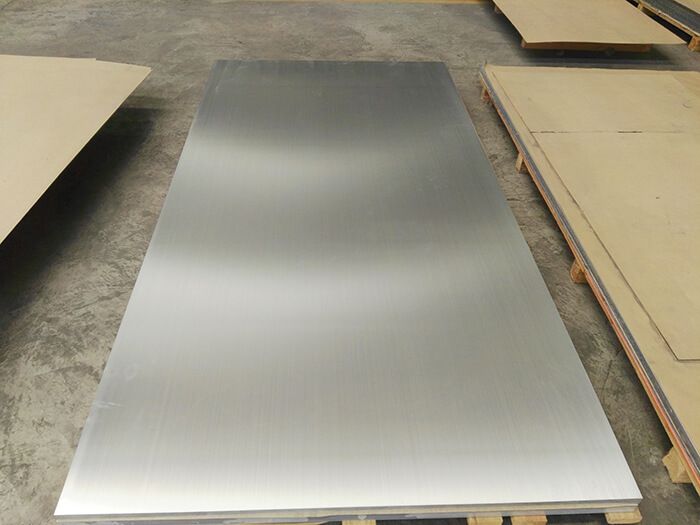As a relatively mature light-weight alloy material, aluminum alloy is widely used in aerospace. It is generally used as structural materials, which has higher specific strength and better processing performance than steel. The aerospace field mainly develops aluminum alloys with high strength, high toughness and strong corrosion resistance to meet the harsh conditions of use in aerospace.
7075 aluminum sheet is an aluminum-magnesium-zinc-copper alloy, which is a heat-treatable alloy. It belongs to superhard aluminum alloy and has good wear resistance. The aluminum plates are all ultrasonically detected to ensure that there are no blisters and impurities. 7075 t6 aluminum plate is a popular choice.

2024 aluminum is one of the strongest 2xxx alloys, with copper and magnesium being the main elements in the alloy. The most commonly used tempers are 2024T3, 2024T351, 2024T4, 2024 T6 and 2024T4. Its corrosion resistance is not so well as most other aluminum alloys and intergranular corrosion may occur under certain conditions. Therefore, it is usually clad with high-purity alloys or 6xxx series magnesium-silicon alloys.
The thick aircraft aluminum plates must be produced by ingot hot rolling (including Hazelett continuous casting and rolling method). The thick plate production capacity does not refer to the production capacity of the hot rolling mill, but the production capacity of the rear finishing equipment (solution treatment furnace, aging furnace, pre-stretching machine, ultrasonic probe production line, etc.)
2XXX series hard aluminum alloys are highly sensitive to overburning, especially the 2024 alloy, which is the most widely used in aviation. Since there is a (a+0+S) eutectic with a melting point of 507 degrees Celsius while the quenching temperature of 490-501 degrees Celsius is very close to the eutectic point temperature. 2024 aluminum is prone to overburning, so the solution heating temperature must be strictly controlled.
The aviation aluminum alloys are sensitive to the quenching transfer time, and are prone to so-called "delayed quenching", which can not obtain the best mechanical properties and aggravate the intergranular corrosion of the material. Usually, the quenching transfer time of the 2xxx alloys is less than 20s, and the quenching time of 7xxx alloys is less than 15s.
Original Source:https://www.aircraftaluminium.com/a/how-to-ensure-quality-of-2024-and-7075-aluminum-plate.html

没有评论:
发表评论